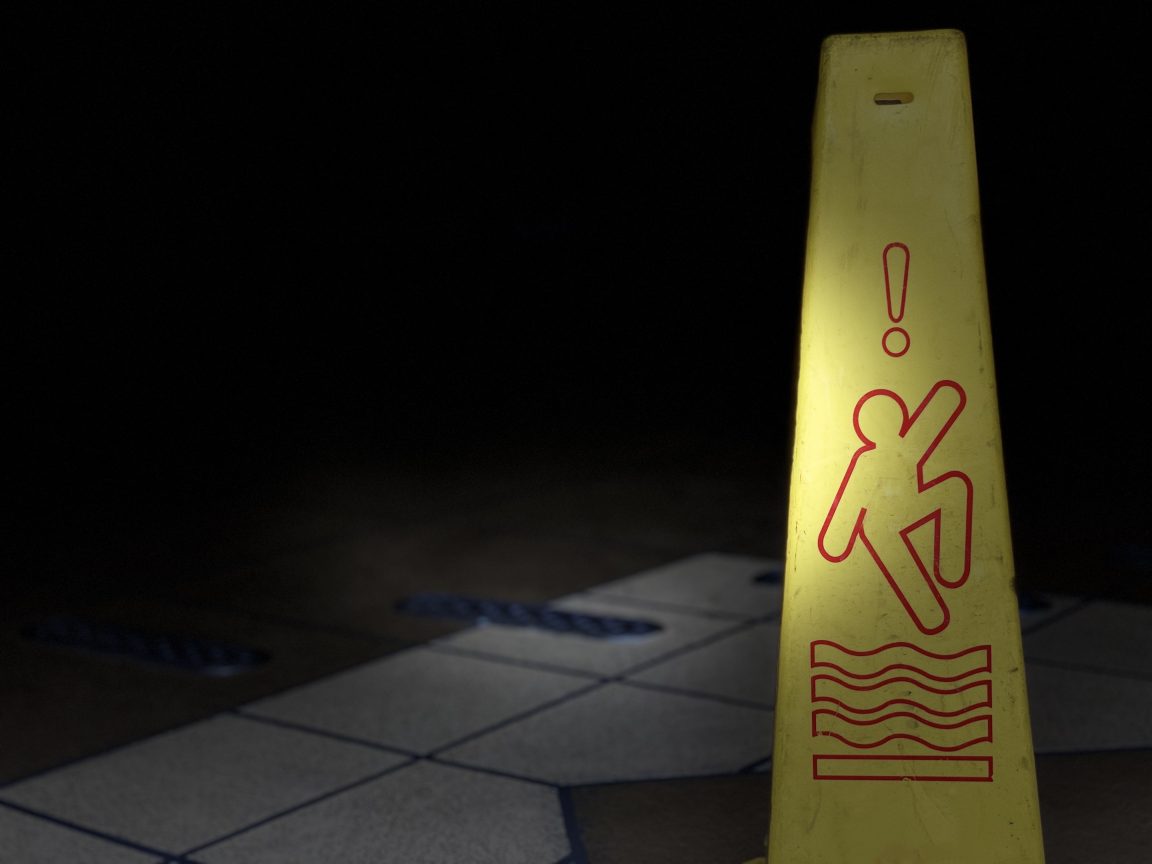Over a million slip and fall accidents happen in the United States every year. However, victims of slip and fall injuries are usually hesitant to file lawsuits. Because they fear that such cases will be quite challenging to settle. While it is true that such claims are not the easiest regarding proving legal liability. It is also true that a lot of false information and slip and fall injury claim myths are quite common.
Continue reading to dispel some common myths about fall and slip claims unlearn the misinformation that surrounds them.
Myth #1: You cannot claim damages if you were partly at fault for your slip and fall accident.
One of the most common slip and fall injury claim myths is that the victim cannot claim their injuries if they were partly at fault. This is not true. So, you can still file a lawsuit and recover damages if you slipped and fell. Even though you overlooked a “wet floor” sign or got distracted by a call on your phone.
Many states are comparative fault states. This means that you can recover damages even if you were partly at fault. But the recovery of damages depends on your percentage of your fault. If you were more careless and at a greater fault, then you would get a lower recovery. However, if you know that you were at a lower fault, do not be scared to file a lawsuit.
Myth #2: Slip and fall cases continue for an extended period of time, so an out-of-court settlement is the best way to go.
While injury claims may take some time, it is never advisable to agree to an out-of-court settlement. Especially, when you know that the case is genuine. The chances are that the insurance company will try to negotiate an out-of-court settlement but never agree to it.
Do not be afraid of how long the injury claim would take. Instead, consult a personal injury lawyer immediately after your accident. These expert and experienced personal lawyers can build a strong case and get the maximum compensation you deserve.
Myth #3: You can file a slip and fall injury claim whenever you want after the accident.
Another common slip and fall injury claim myth is that you can file an injury claim whenever you want. That’s not true, as there is a time limit to file a slip and fall injury claim. There are specific time limits in which the complainant can file a lawsuit. But, it depends on the nature of the accident, the state you are in, and other factors. Generally, the time limit is two years.
Myth #4: The property owners are always at fault.
It’s completely understandable that you would like to entirely blame the property owners for the slip and fall accident while you are injured, in pain, and being treated at the hospital. However, the property owners are not always at fault.
Sometimes, they genuinely don’t know that something would lead to an accident. On other occasions, the accident may happen because of the subcontractor’s fault and not theirs. These things need to be accounted for, and the lawyer must consider all these factors and investigate all the parties that could have been responsible for the accident.
Myth #5: The property owner is automatically at fault if the floor was wet when the slip and fall incident happened.
Too many accidents happen when the floors are wet after a mop or some liquid is spilled. However, that does not make the property owner at fault by default. Other things such as uneven flooring or tiles and damaged carpets could have caused the slip.
Even if the reason for the slip is obvious to you, consult an attorney as they would inspect the site of the accident thoroughly and might just come up with a hazard that you overlooked.
Myth #7: You have gotten minor injuries after the slip and fall accident, so you are not eligible to file a lawsuit.
Had a slip and fall accident and didn’t get multiple bones fractured? No blood spilling, bone-breaking? Thank God for that. But that does not mean that you are not eligible to file a lawsuit.
One of the most common slip and fall injury claim myths is that you cannot file a claim if you suffered minor injuries. You can ask compensation even for minor injuries like sprains and strains, a couple of broken bones, or eye injuries, as these may become more severe after some time and even develop into something chronic. Therefore, you should speak to a lawyer who would educate you about your legal rights and protect them.
Myth #8: The property owners will have to compensate you with their own money.
Sometimes, slip and fall injury victims decide not to file injury claims as they feel bad about burdening the at-fault party for an accident. However, the at-fault party is not even the one that pays for victims’ damages most of the time as they have insurance that pays for victims’ injuries in case of an accident that happens due to their negligence.
Myth #9: Your insurance rate will increase drastically if you file a lawsuit.
This is a misconception that people really need to do away with, as it scares far too many people from filing a lawsuit and claiming compensation for their injuries that they deserve. The truth is that your private insurance rate has no direct correlation with whether you file a lawsuit or don’t.
Moreover, your insurer would likely encourage you to file a lawsuit and claim recovery from the at-fault party. Don’t waste this option by thinking why bother to file a lawsuit when you have to pay a higher rate to your insurance company after receiving compensation.
Concluding Thoughts
There are too many slip and fall injury claim myths. Dispelling these myths and learning the correct information is essential to know what to do if you or your loved one finds yourself in such a situation.
Furthermore, we suggest that you hire an experienced slip and fall accident lawyer who would handle your matters for you while you focus on recovering and getting better.


